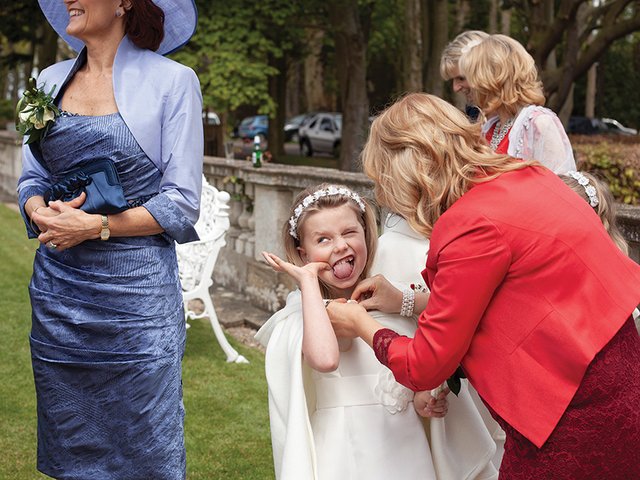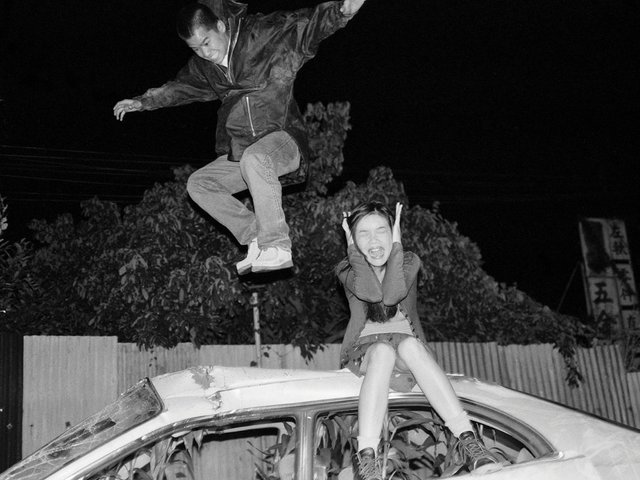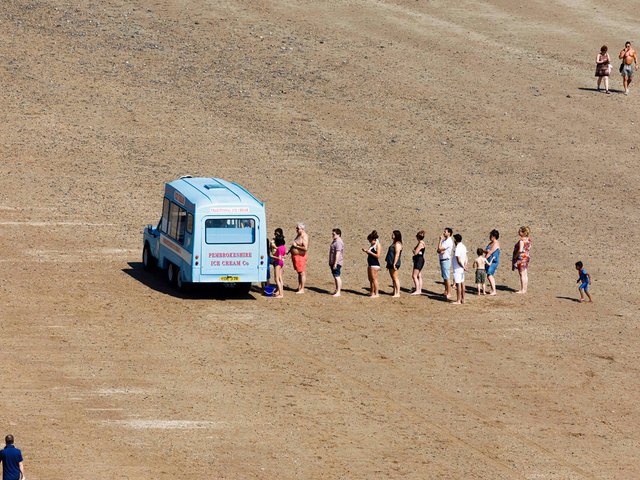MK Gallery in Milton Keynes is presenting the first major UK retrospective of Chilean photographer Paz Errázuriz, offering a long overdue institutional spotlight on the artist at the age of 81.
Titled Dare to Look, the exhibition features 171 photographs spanning five decades of Errázuriz’s career. Known for documenting marginalised communities in Chile, the self-taught photographer has built an acclaimed body of work that challenges social norms and official histories.
Despite international recognition—including exhibitions at the Venice Biennale and acquisitions by Tate, MoMA and the Reina Sofía—Errázuriz had never previously been the subject of a solo show in a British institution. “Even late in life, recognition is possible,” she says. “How long does it take for a woman to be recognised for her work?”
Errázuriz was born in Santiago in 1944. Though she hoped to study art, her parents disapproved, and she trained instead as a teacher. While studying at the Cambridge Institute of Education in the early 1970s, she longed for a camera but could not afford one.
“I always wanted to have my camera,” she says. “But my life was that of a student—I couldn’t afford it.” She only began photographing seriously later in Chile, inspired by a friend's father who had a darkroom.
Her early instinct was always towards people. “I don’t do landscapes,” she explains. “It’s how to get to people. And I found out that the camera was the best tool I had in my hands.”
Following the 1973 military coup, Errázuriz lost her teaching job and turned to photography full-time. She co-founded the Asociación de Fotógrafos Independientes to document civil unrest and protect freelance photographers.
“We weren’t part of the newspapers. We were independent,” she says. “You learn how to move, you have instincts. You smell when danger is near.”
Errázuriz describes working under dictatorship as “learning to speak in metaphors”. “It wasn’t planned,” she explains, “but the result was naturally metaphorical.”
The photographer is known for her patient, immersive approach. “Nobody asked me to do this work,” she says. “I planned my way. I never photograph anyone straight away—I talk, I record, I take notes. Sometimes it takes weeks. You have to be patient. You also have to be obsessed.”
One of her most moving series, El Infarto del Alma, depicts couples in a psychiatric hospital. Errázuriz lived in the hospital for months. “Photography became a generous gesture for them,” she says.
“There was a real couple who lived together on the ward in the hospital. They wanted to get married. When I left, I gave them their portraits. They treated them like certificates of marriage.”
Reflecting on seeing these images again, Errázuriz says: “Some are very sad. In Adam’s Apple, most of the people died of AIDS. I know their stories—I spent so much time with them. They’re like my family.”
Asked what advice she’d give her younger self, she sys: “Be patient. Nothing is immediate. You must take time—and believe in what you’re doing.”
- Paz Errázuriz: Dare to Look, MK Gallery, Milton Keynes, until 5 October


![Paz Errázuriz, Evelyn, La Palmera, Santiago/Evelyn, La Palmera, Santiago from the series Manzana de Adáncolor [Adam's Apple colour], 1983
© Paz Errázuriz. Colecciones Fundación MAPFR](https://cdn.sanity.io/images/cxgd3urn/production/adf78c13dab110e24e2d782643ed21942007fb26-1181x796.jpg?w=1200&h=809&q=85&fit=crop&auto=format)



